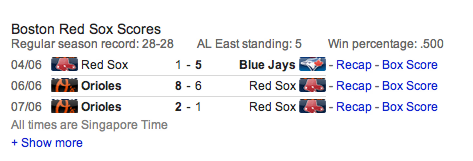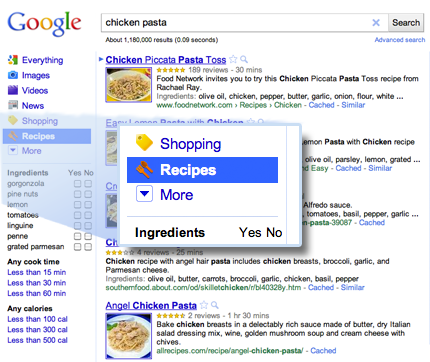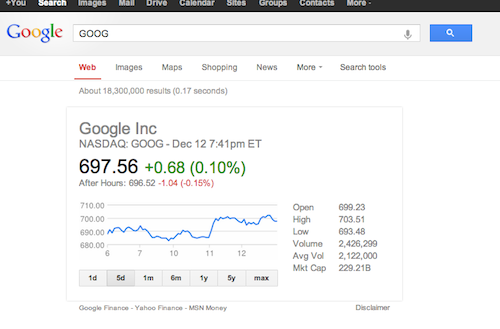Intent driven design
I used to be a URL fanatic. I used to type every web address I visited letter by letter. I used to yell at my parents for opening Yahoo and searching for “Hotmail” in the big search box instead of just typing “www.hotmail.com”.
These days, with Chrome’s integration of search into the address bar, I’ve found that I’m pretty damn lazy. When I want to visit Facebook, I hit CMD+L, type “fa..” and hit enter. Then I click the first Facebook link in the search results. It’s faster. If I wanted to, I could default the address bar search to use “I’m feeling lucky” searches and drop me right at the first result without any clicking. Then I’d be really lazy. But Google optimized Chrome because they realized something in their research on user behavior:
People don’t use address bars.
Some absurd percentage of web sessions start with search. I don’t know where I’ve seen these numbers, but I swear that some research firms estimate that over 80% of sessions start with a search. With Google Chrome’s popularity and the handy search integration into the toolbar, this is probably even higher.
Full URLs are pretty worthless these days. We’re not typing full URLs into web browsers anymore. We’re searching for things based on keywords we’re interested in.
For example, I’m not visiting “redsox.com” anymore. I’m searching “redsox score”, and getting this:

I’m not visiting Flight Tracker, I’m searching “SQ21” and getting this:

Gmail even recently started including rich markup when they identified flight information in my email:

Less clicks, more information, standardized format.
Microformats
Well structured information makes great user experiences possible. Flight information and sports scores are just the beginning of an entirely new generation of search experience that will heavily rely on semantic information via Microformats and Facebook’s Open Graph protocol.
To get a taste of some of the possibilities of life with microformats, check out Google’s new Recipe search engine:

Very cool when you know which ingredients you want to use and how much time you have to cook.
The incredible thing is, that this example is just scraping the surface of the new revolution in search results. I think that search results are going to become incredibly powerful over the next 3-5 years, with things like Microformats and Facebook’s Open Graph providing the foundation of these improved search experiences. This is a win for everyone– but presents interesting implications on the power of the web in the future.
Many sites live and die by Search Engine Optimzation and their ranking in Google search results.
But what if we didn’t even need to visit those sites anymore? What if google knew how to present the information we were looking for? What would websites look like then?
They probably wouldn’t even be websites, but just data feeds. In fact, if we want instant information in a consistent format, we would just search for it, let google or facebook present it the way they felt was best, and then be on our way.

